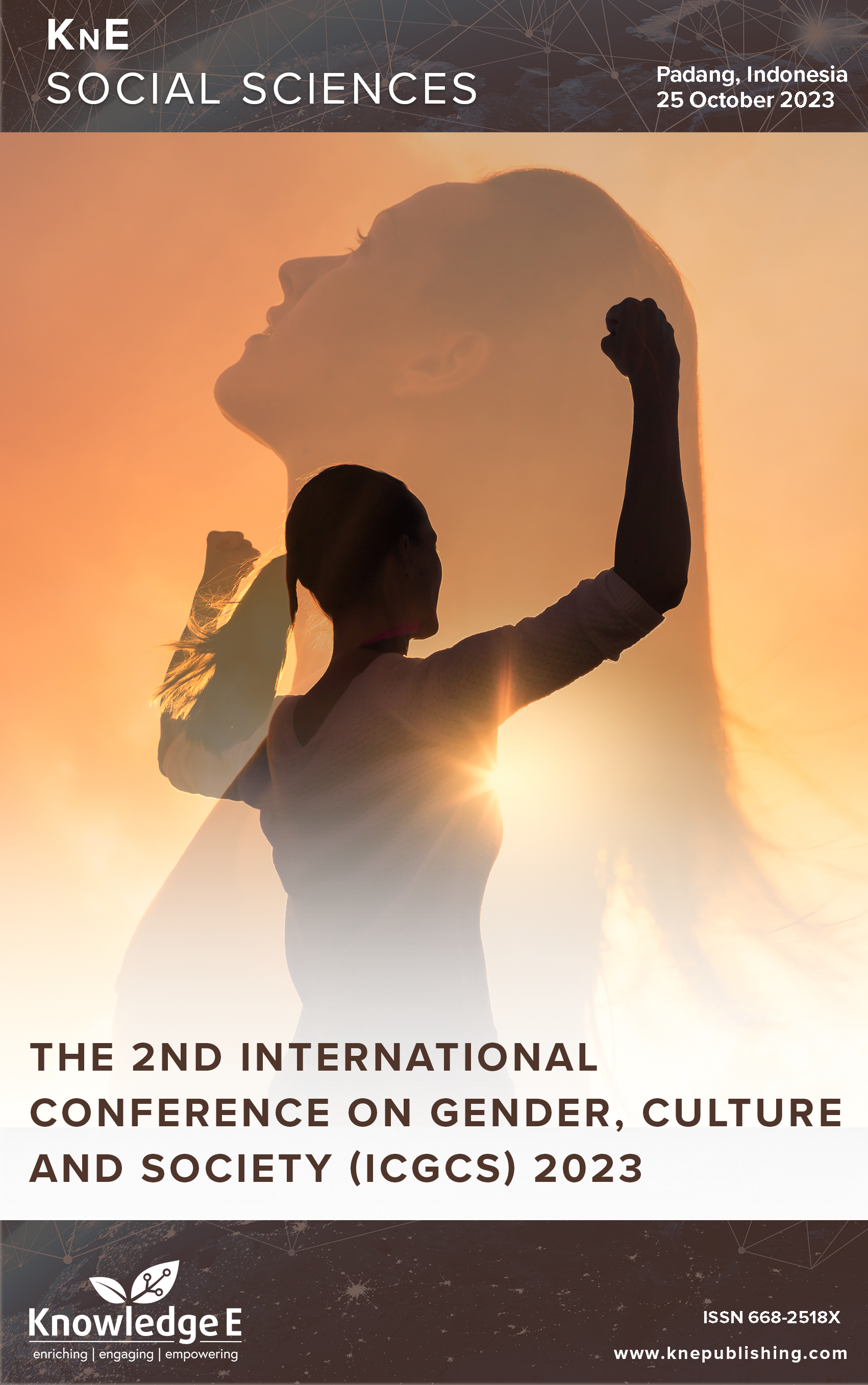A Gender Analysis of Perceptions of Traditional Medicines by Sikerei
DOI:
https://doi.org/10.18502/kss.v9i23.16720Abstract
This paper analyzed gender perceptions of traditional medicine by sikerei in Mentawai Islands Regency. Traditional medicine by sikerei still exists amid the modernization of medicine. The Mentawai Islands are one of the unique regions in Indonesia with a rich culture and traditions. One of the important aspects of Mentawai culture is the system of traditional medicine developed by shamans or sikerei. Sikerei is an individual who has knowledge and skills in traditional medicine and is recognized as a religious and spiritual leader in the Mentawai community. The Mentawai people develop traditional medications through rituals and use leaves as medicine in the healing process. Traditional medicine by sikerei in the Mentawai community is a practice that has existed for a long time and continues to be passed down from generation to generation. The people of the Mentawai Islands Regency view males as the ones who prioritize logic in their actions and tend to be different from females, who prioritize their feelings and hearts. This also impacts their perception of the traditional sikerei healing culture. This is in line with the Perception Theory proposed by Bimo Walgito, which states that perception is a view of an object that is obtained from the process of sensing, organizing and interpreting the object received by a person so that it is something meaningful and an integrated activity within oneself. The research method used in this research was a qualitative approach with data collection through in-depth interviews. Research participants were selected purposively by considering variations in gender, age, and socio-economic background. Interviews were conducted with sikerei, men and women in several villages in the Mentawai Islands. The study took 150 samples from the Mentawai Islands. Data was analyzed using a thematic approach. Data collected from interviews were processed and analyzed to identify the patterns and themes that emerge in the perception of traditional medicine by sikerei. Comparisons between female and male perceptions were made to explore the differences and similarities in their perceptions. The results indicated that there is a relationship between gender and perceptions of sikerei traditional medicine. The chi-square test showed the number 6.732 with df 2 which meant there was a relationship between the two variables, while the contingency coefficient test showed the number 0.214 which meant that there was a low positive relationship.
Keywords: Gender perception, traditional medication, sikerei
References
Astuti EY, Rahman A, Ismunandar A. Persepsi pengunjung apotek terhadap keamanan dan efektivitas obat tradisional di Kecamatan Paguyangan tahun 2021. Pharmacy Peradaban Journal. 2022;2(1):39–45.
Djamaluddin A, Putra RK, Ratnasari D. Persepsi Masyarakat terhadap Pengobatan Tradisional Berdasarkan Perbedaan Jenis Kelamin [Jurnal Ilmu Holistik dan Kesehatan]. Journal of Holistic and Health Sciences. 2020;4(2):67–77. DOI: https://doi.org/10.51873/jhhs.v4i2.82
Jennifer H, Saptutyningsih E. Preferensi Individu Terhadap Pengobatan. Jurnal Ekonomi dan Studi Pembangunan. 2015;16(April):26-41. DOI: https://doi.org/10.23917/jep.v16i2.1459
Kartika D, Sewu PL, Pelayanan Kesehatan Tradisional Dan Perlindungan Hukum Bagi Pasien WR. PELAYANAN KESEHATAN TRADISIONAL DAN PERLINDUNGAN HUKUM BAGI PASIEN. Soepra. 2017;2(1):1. DOI: https://doi.org/10.24167/shk.v2i1.805
Nurulsiah AN. Pengobatan Tradisional Pengertian Pengobatan Fakultas Farmasi UMP. 2016:5-15.
Nur M. Sikerei dalam cerita: penelusuran identitas budaya Mentawai. Jurnal Masyarakat dan Budaya. 2019;21(1):89. https://doi.org/10.14203/jmb.v21i1.535. DOI: https://doi.org/10.14203/jmb.v21i1.535
Paez A, Mercado RG, Farber S, Morency C, Roorda M. Accessibility to health care facilities in Montreal Island: an application of relative accessibility indicators from the perspective of senior and non-senior residents. Int J Health Geogr. 2010 Oct;9(1):52. DOI: https://doi.org/10.1186/1476-072X-9-52
Pemerintah Kabupaten Mentawai. Rencana Pembangunan Daerah Jangka Menen- gah. 2022:1-52.
Rismadona R. Pengobatan Tradisional Pada Masyarakat Kota Prabumulih Propinsi Sumatera Selatan. Jurnal Penelitian Sejarah Dan Budaya. 2019;4(2):1177–88. DOI: https://doi.org/10.36424/jpsb.v4i2.65
Siswanto S. Pengembangan Kesehatan Tradisional Indonesia: Konsep, Strategi dan Tantangan. Jurnal Penelitian dan Pengembangan Pelayanan Kesehatan. 2018;1(1):17- 31. https://doi.org/10.22435/jpppk.v1i1.429. DOI: https://doi.org/10.22435/jpppk.v1i1.429

